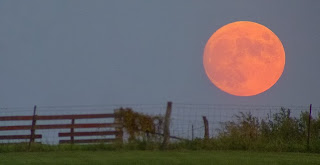As a publisher in the business for some 25 odd years, I get lots of bounced mail. With the advent of the digital age, I've been able to locate quite a few poets who have moved on with a variety of online resources, managing to get contributor copies and subscriber issues connected up with their owners, something that had been previously nigh impossible.
So, when the above bit of mail bounced back, I put it aside for further investigation with a number of others. Before I got a chance, however, I received bad news from long time correspondent and poet, David Chorlton.
Gayle Elen Harvey had died in a traffic accident nearly a year ago.
As David noted, "We can't assume that news travels," even this technology-laden time.
David had heard of Gayle's death from another poet/long-time correspondent, Alan Catlin, awhile back. When he saw Gayle's poem in #190, enclosed in the envelope above, he got in touch with me to pass on the sad news.
Over the years, a number of small press poets I've known have passed on and I'm often shocked at how little is out there about some poets (you will find a list in the sidebar towards the bottom of this page). So, I'm gathering here, in this spot, the six poems I published by Gayle over the years, including the latest, just out in #190 of Lilliput Review.
As you might imagine, Lillie has evolved, as have I, over the years, and now has a more minimalistic, Eastern bent than it did in the early days. Gayle's poems reflect that change of style - on my part, not hers. The poem published in #20, Because, way back in March 1990, stands fairly well, arm in arm, in tone, style, & subject, with Still Hungry, published in the Autumn of 2013.
The poem from #49, Where once they lined up, was from an all-women issue of Lilliput, and can be seen as heightening an ongoing thread this work of what might be described as a chronicle of the constant struggle in relationships.
Because, from #20, was selected as one of the best poems of the first 49 issues and so appeared in #50, which was a best of issue of those early years.
When I began public reading again a few years back, I read a selection of Lillie poems, reflecting my lack of confidence at that time in my own work. Because was one of the poems I read. It is still one of my favorite poems published in the magazine.
Though I found a poem or two here and there by Gayle and a mention in contributor notes searching the net, there seemed to be little of substance. One gem I finally did locate, however, courtesy of google books, is the introduction by Gayle herself to her collection Greatest Hits, 1976-2001, the Greatest Hits series being one originally put out by Pudding House Press and since taken over by Kattywompus Press. This gives something of a sense of the poet herself and is at once straightforward and poignant.
Finally, following Gayle's poems, which are presented in reverse chronological order, is a poem by David Chorlton in memory of Gayle.
~~~~~~~~~~~~~~~~~~~~~
Still Hungry
for memories, he continues to love her
with deception
and atonal flatteries.
Devotee of serial urges, they’re his own
dark parentheses.
Fakir in worn corduroy, he surrounds
himself
with the kudzu and weeds of his sex
as he scurries by, leaving
messages trailing
scars. #190
Dreaming (for Paul)
Memory's suckled
with memory. The mossy foreheads
of stones are dripping
with moonlight.
Nothing is
lost. Reef after reef, all these sleep-shapes
under our eye-lids
as cranes ablaze
in their arrogant fringes, pattern
the blackness. #61
As if spring had not gone away
and what you said would never be safe
with anyone. Always, starting over,
unconnected to everything else
as if the balance of things
has been changed in the middle
of what is happening.
And you wake, finding nothing
but her shadow
on the last page. #57
Where once they lined up
according to size, your words come
muzzled, rushing straight out of
colonial history, Master
and slave. #49
Thinking it has nothing to do
with the women you love signaling
from a thousand windows,
you are still running in the dim light, moved,
as if by obedience, by one passion
which is denial
of everything. #39
Because
you are tired because I thirst for
salt, we turn to each other.
You are barefoot. It is winter.
This is going to be a difficult story.
#50, #20
~~~~~~~~~~~~~~~~~~~~~
Line Breaks
In memoriam Gayle Elen Harvey
Whoever lives by the line
knows how to take a switchback turn to reach
the meaning
promised in the phrases
that carry one thought into another, until
there is light in the language.
Each word
is ordinary before
the one that follows
transforms it.
Paper
could be snow
falling by the ream, or apples
become the scent of rain; always there is
an element of surprise
transforming what we think to the gold
the alchemist long dreamed of
but finding lead
would always be lead
gave up his kitchen to the poet
who knew better
how to stretch the words we use routinely
across the page
until they are luminous.
David Chorlton
~~~~~~~~~~~~~~~~~~~~~
Even in Kyoto—
hearing the cuckoo's cry—
I long for Kyoto.
Bashō
translated by Robert Hass
best,
Send a single haiku for the Wednesday Haiku feature. Here's how.






































